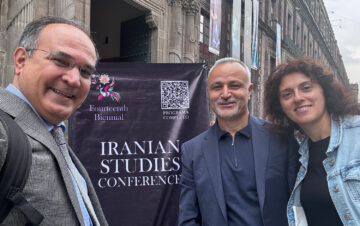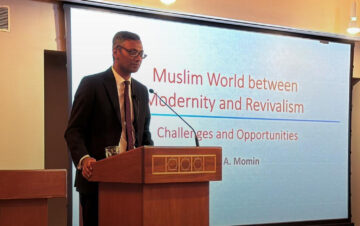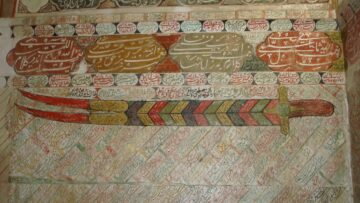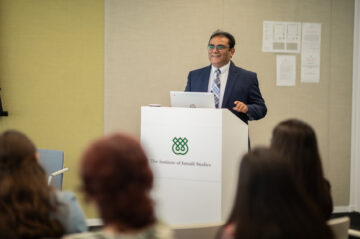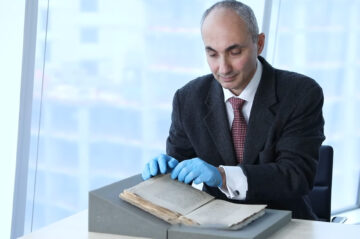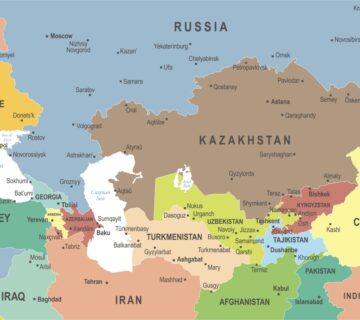The fourth lecture in the Shi‘i Studies Lecture Series was delivered by Dr Andrew Newman in April 2010. It was entitled Khilaf and authority between the Buyid and Safavid periods. Looking specifically at the example of khilaf literature, Dr Newman discussed wider methodological issues in the contemporary study of Shi‘i Islam.
Dr Newman argued that the khilaf (debate or polemical) literature is a vast corpus of work which chronicles internal Shi‘i debates. The al-Dhari‘a ila asanif al-Shi‘a, the great bibliographical dictionary of Agha Buzurg al-Tihrani (d. 1970 CE), lists titles in the khilaf genre scattered across a number of volumes. A preliminary count turns up more than 1000 titles which may be said to belong to khilaf literature, without taking into account duplicates and cross-referencing.
The Usuli/Akhbari ‘debate’, between the rationalists and the traditionalists can also be covered by the appellation khilaf. While Akhbaris rely on the traditions of the Imams as a source of religious knowledge, Usulis emphasise the importance of reason in understanding the principles (usul) of theology and religious law. This dispute is one of the best-known examples of the khilaf genre, and was at its most intense between the seventeenth and the early nineteenth century CE. It has received much attention to the detriment of other examples in the genre, which seldom receive consideration.
As part of their fierce intellectual debates, the supporters of the Akhbari and Usuli schools occasionally composed virulent polemical tracts against each other. However, this presentation argued against the suggestion that the Usuli/Akhbari interchange was of little practical or ‘societal’ import in relation to religious or political authority as well as in matters of doctrine and practice. In good Shi‘i spirit, this proposition itself may be said to have generated some measure of khilaf, however small the number of participants in the discussion. Nevertheless, there is no doubt that other examples of khilaf literature could be of immense practical impact in relation to religious as well as political aspects of authority.
Dr Newman is Reader in Islamic Studies and Persian and Director of Graduate School of Literatures and Languages at the University of Edinburgh, and Co-Director of Centre for the Advanced Study of the Arab World (CASAW) at the same University. He is the author of The Formative Period of Shi‘i Law: Hadith as Discourse Between Qum and Baghdad (Richmond, Surrey: Curzon, 2000), Safavid Iran: Rebirth of a Persian Empire (London: I. B. Tauris, 2006) and the editor of Society and Culture in the Early Modern Middle East, Studies on Iran in the Safavid Period (Leiden: Brill, 2003).
For information on the upcoming lectures of the Shi‘i Studies Lecture Series, please see Forthcoming Events.

